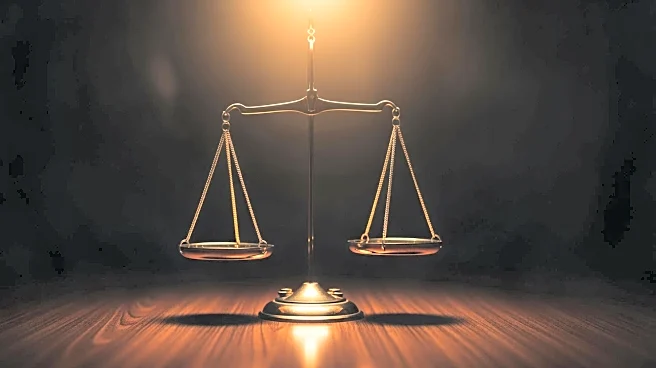What's Happening?
Supreme Court Justice Clarence Thomas has expressed dissent regarding the Supreme Court's decision not to hear a case challenging the Feres doctrine, a legal precedent established 75 years ago. The case involved
the wrongful death claim filed by Kari Beck, whose husband, Air Force Staff Sergeant Cameron Beck, was killed in a collision with a government vehicle driven by a distracted federal employee. The lower courts dismissed the claim based on the Feres doctrine, which generally prevents lawsuits against the U.S. for injuries related to military service. Thomas criticized the doctrine for causing confusion and depriving servicemembers and their families of legal redress for harms suffered during service. He argued that the doctrine lacks a basis in the Federal Tort Claims Act's text and should be reconsidered.
Why It's Important?
The Feres doctrine has significant implications for military personnel and their families, as it limits their ability to seek compensation for injuries or wrongful deaths related to military service. Justice Thomas's dissent highlights ongoing criticism of the doctrine, which has been seen as unjust in cases involving non-combat-related incidents such as medical malpractice and car accidents. The refusal to hear the case means the doctrine remains in effect, continuing to impact servicemembers' legal rights. This decision underscores the need for potential legislative action to address the limitations imposed by the Feres doctrine, as noted by Justice Sonia Sotomayor, who also called for congressional attention to the issue.
What's Next?
With the Supreme Court declining to hear the case, the lower court's ruling stands, maintaining the application of the Feres doctrine. This decision may prompt further calls for legislative review and potential reform of the doctrine. Justice Sotomayor's statement suggests that Congress has the authority to amend the legal framework governing such cases, which could lead to future legislative efforts to address the perceived injustices caused by the doctrine.
Beyond the Headlines
The Feres doctrine's continued application raises broader questions about the balance between sovereign immunity and the rights of military personnel. The doctrine's critics argue that it unfairly shields the government from accountability in cases that could be pursued by civilians under similar circumstances. This legal precedent reflects ongoing debates about the scope of military-related legal protections and the need for reform to ensure equitable treatment for servicemembers and their families.











